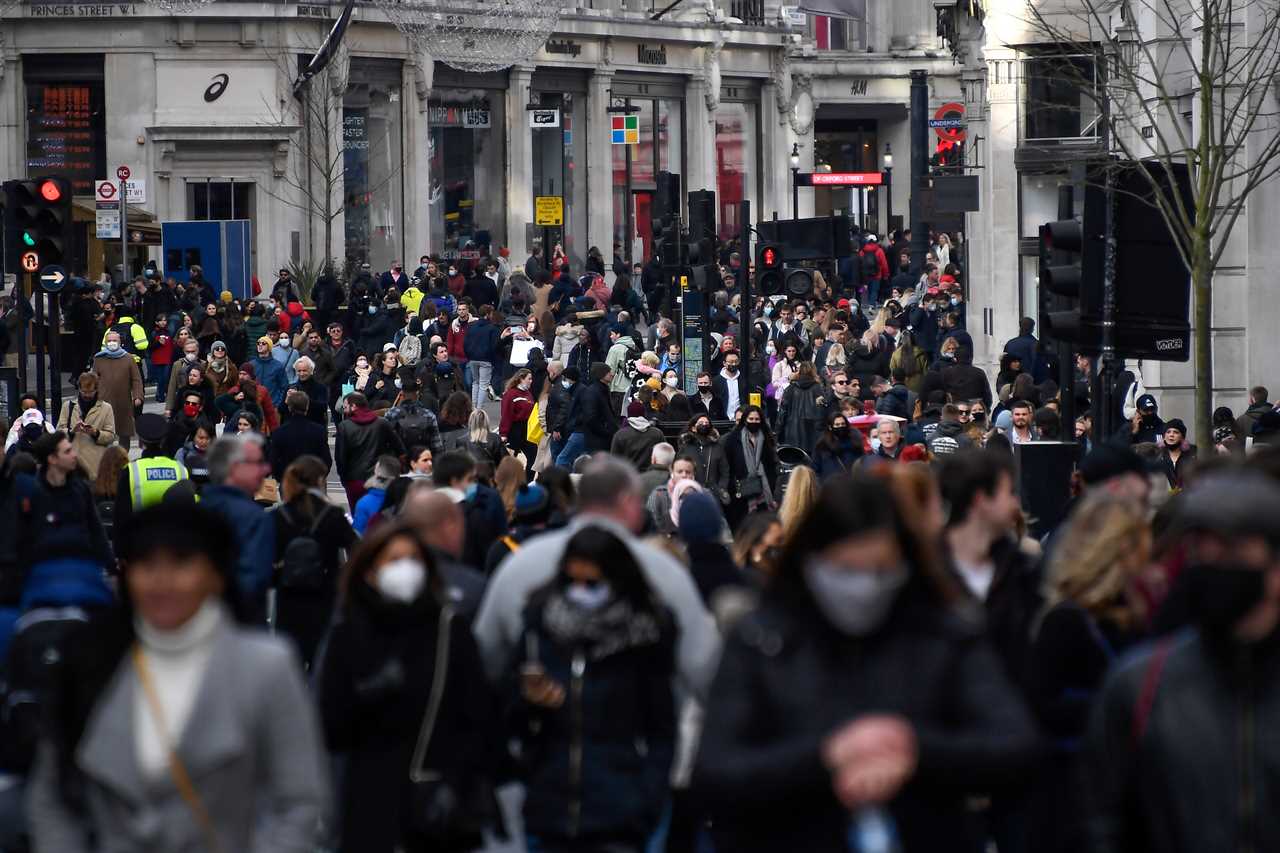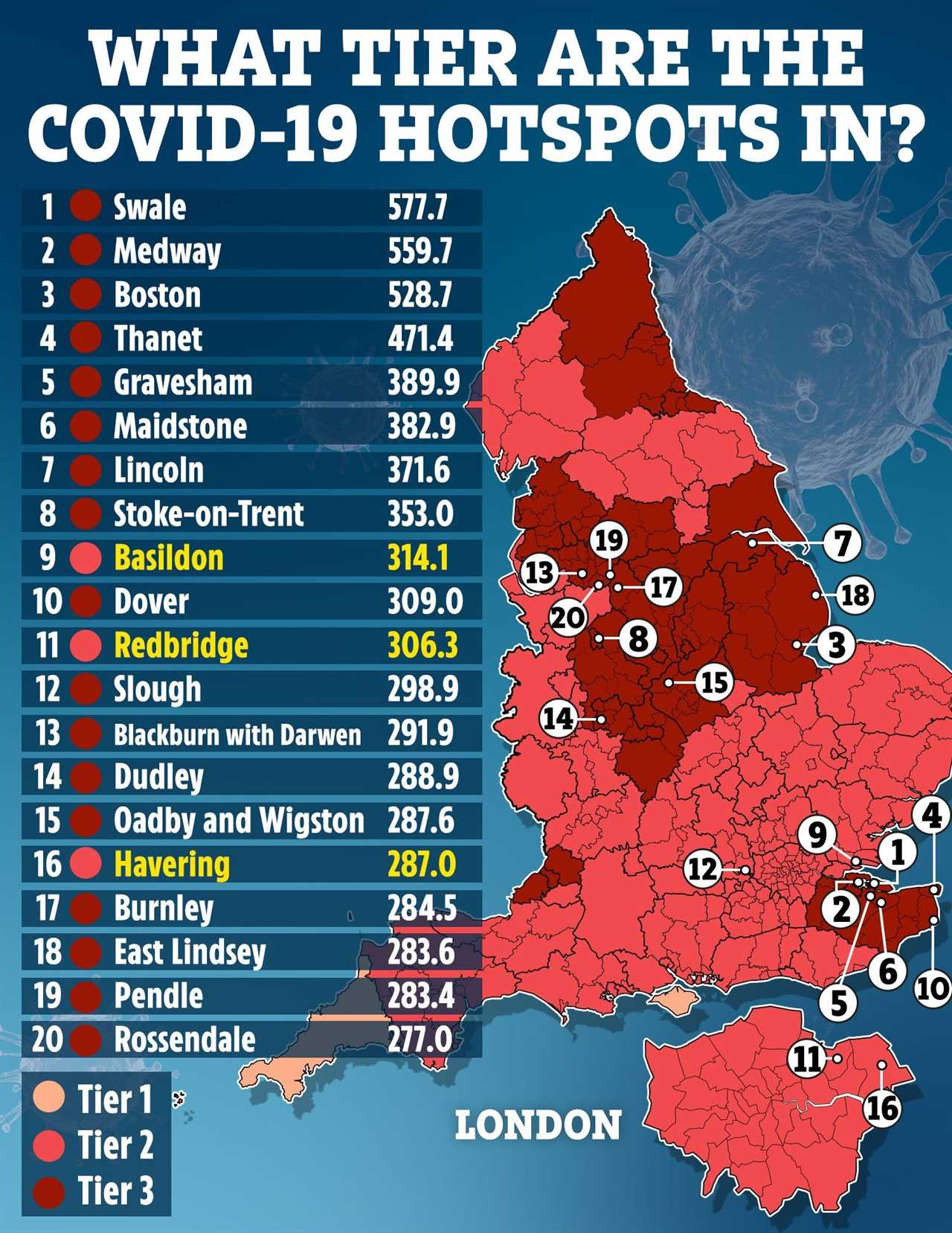THE UK’s new Covid cases and deaths have fallen again, with 397 more people dying and 15,539 testing positive.
The increases take the UK’s total case number to 1,705,971, while the death toll is 61,014.

Today’s new figures are lower than yesterdays, as the effects of the month-long coronavirus lockdown begin to show.
Yesterday, cases rose by 16,298, while deaths increased by 504.
Today’s statistics come as:
- A £1.5billion spending spree in hard-hit pubs and shops today will help to kick-start Britain’s battered economy
- Medway in Kent is now the country’s number one coronavirus hotspot
- GPs have been told to be ready to start giving patients the Covid-19 vaccine in just nine days
- Britain’s official coronavirus R rate has dropped to 0.8 this week as the epidemic “shrinks again”
The figures came as a 15-year-old with no underlying health conditions was confirmed to have died from the bug.
Meanwhile, Fehzan Jamil, from Bradford, become one of the UK’s youngest coronavirus victims last month when he passed away at the age of just 10.
The boy had a number of underlying health issues and despite the efforts of his family to shield him from Covid-19, he contracted the virus and died in hospital.
The number of younger patients with no underlying health conditions dying from coronavirus remains low.
Trending In The News reported last month that 95% of coronavirus victims had underlying health conditions.
Out of the tragic 37,796 deaths in NHS England hospitals up to November 20, 35,806 had underlying conditions.
According to an analysis of ONS data by The Times, the average age of coronavirus victims is 82.
Underlying conditions that put patients at serious risk of complications include asthma, cancer, cystic fibrosis and diabetes.
VACCINE HOPE
There is a glimmer of hope for the future despite the large number of deaths as GPs have been told to be ready to start giving patients the Covid-19 vaccine in just nine days.
However, the NHS warned the “scale and complexity” of the immunisation programme would make it “one of the greatest challenges they have ever faced”.
“It is crucial we start to activate local vaccination services to allow priority patient cohorts to start accessing the vaccine,” it said in a letter.
The warning was signed by Dr Nikita Kanani, medical director for primary care at NHS England and NHS Improvement, and Ed Waller, director of primary care.
The vaccination sites must be ready to administer 975 doses of the vaccine to priority patients within three-and-a-half days of delivery on December 14.
Speed is crucial with the vaccine, as it is usually stored at -70C and will only remain stable at fridge temperatures of between 2C and 8C for a limited time.
There are 975 doses in each of the Pfizer/BioNTech vaccine packs, which has posed a problem of how they can be broken up and distributed to other key sites such as care homes.
The first to receive the vaccine in the centres will be those aged 80 and over, as long as their other risk factors “clinical or otherwise” had been taken into account.







